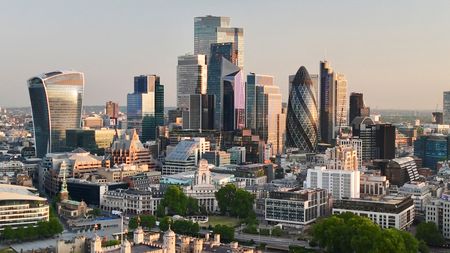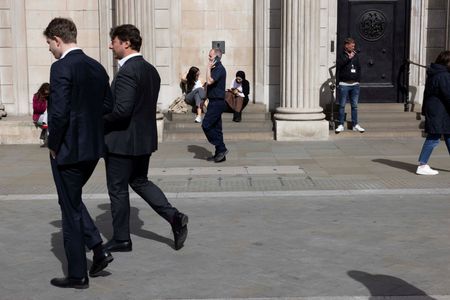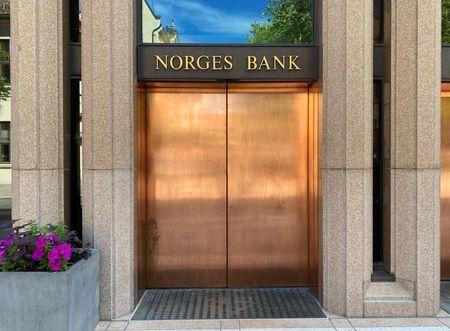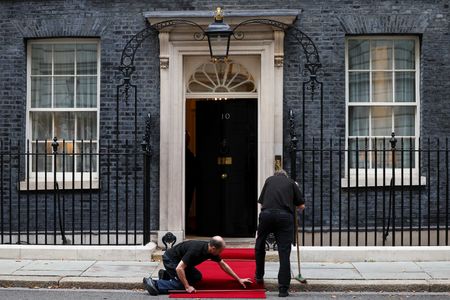By David Milliken and William Schomberg
LONDON (Reuters) -Britain’s economy slowed less than expected between April and June after a strong start to the year, despite the shock of U.S. trade tariffs and a weaker jobs market, offering help to finance minister Rachel Reeves in meeting her budget goals.
Official figures published on Thursday showed that after an unusually strong 0.7% expansion in the first three months of 2025, gross domestic product grew 0.3% in the second quarter.
That was above the 0.1% forecast by the Bank of England and a Reuters poll of economists.
Sterling rose slightly against the dollar after the data.
The Office for National Statistics said British GDP fell 0.1% in April – a smaller decline than first thought – and dropped again in May before rising 0.4% in June with growth across services, industry and construction.
Economists said much of the growth reflected higher public spending and businesses at home and abroad building up stocks of goods ahead of higher U.S. tariffs.
Business investment fell by 4% from the first quarter and household spending growth was weak.
“The continued reluctance of consumers to open their wallets is concerning,” said Thomas Pugh, economist at accountants RSM UK. “We don’t expect growth to pick up much from here as continued consumer caution, weaker global demand and tax increases all continue to drag.”
Most economists think Reeves will have to raise taxes in her annual budget in October or November – potentially by tens of billions of pounds – as a subdued growth outlook and high borrowing costs have made her budget goals harder to reach.
The Royal Institution of Chartered Surveyors said earlier on Monday that higher taxes were one factor weighing on the housing market and the Confederation of British Industry urged Reeves not to make businesses bear the brunt of further tax rises.
“The UK is walking a narrow path between resilience and stagnation. Policy uncertainty in the run-up to the Autumn Budget risks tipping the balance,” said CBI lead economist Ben Jones.
Last week, the BoE forecast Britain’s economy would grow 0.3% in the third quarter and 1.25% in 2025 as a whole.
The strong growth in the first quarter reflected increased production to avoid U.S. tariffs and more property sales due to the imminent end of a tax break.
SECOND-FASTEST IN G7
Reeves has highlighted how British economic growth in the first quarter of the year was the fastest in the Group of Seven large advanced economies. Thursday’s data showed Britain joint-second with France in the second quarter.
Output in the second quarter overall was up 1.2% from the same period last year compared to a median forecast from economists for 1.0% growth. On a per head basis, GDP was 0.7% higher than a year earlier.
After the data, Reeves said there was “more to do to deliver an economy that works for working people” and the government would press on with plans for infrastructure investment, reduced restrictions on construction and a higher minimum wage.
The opposition Conservative Party said further tax rises would lower living standards.
Business groups have said firms have scaled back hiring – particularly for lower-paid, part-time roles – due to a rise in employers’ social security payments and an increased minimum wage that took effect in April.
Data on Tuesday showed payrolled employment fell for a sixth month although growth in basic pay remained fast at 5%.
Last month the International Monetary Fund forecast Britain’s economy would grow 1.2% this year and 1.4% in 2026 – a little faster than the euro zone and Japan but slower than the United States and Canada.
(Reporting by David Milliken; Editing by William Schomberg and Kate Mayberry)












